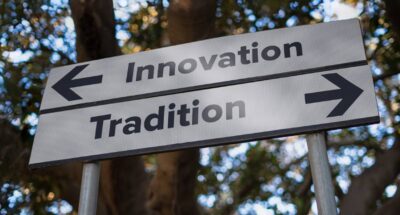
How family enterprises can navigate adversity and build organizational fortitude
Fire, floods, relocation, and a pandemic couldn’t sink Formans, the family-run smoked salmon supplier. Here’s how they stayed afloat....

by Peter Lorange Published 10 May 2022 in Family business • 7 min read
Many families have built their wealth over time based on owning a particular company. With the success of this company, the fortunes of the owning family have also grown. While this evolutionary path certainly represents a way for a family to accumulate wealth, there may also be potential problems.
One major challenge would be that the owning family might become too heavily exposed to the firm’s ups and downs. Should the firm run into difficult times, for instance, the wealth of the owning family would also diminish.
Many families have been facing this dilemma of being over-dependent of the firm they own. For some families, the “solution” might be that their firm is sold, or at least their ownership share in the firm is reduced, with proceeds going towards building a more diversified portfolio of investments. This means that the eggs are no longer in one basket, i.e., that the clustered investment risk the family is exposed to would be reduced. In my view, the various permutations of middle-ground positions offer the most attractive possibilities for augmenting and protecting long-term wealth.
But how might such a transition from a company-based focus to a diversified portfolio of investments take place?

It is, of course, a key pre-requisite that a suitable buyer for the firm can be found, and that the price is right. We shall not have to discuss this further here; rather, we shall raise some other issues that typically might come up during the sales process, such as:
There are three major reasons to sell the family firm. These are:
Selling the family firm too early can also entail a massive opportunity cost for one’s family
There are, of course, also strong reasons for maintaining family ownership, such as:
When relatively large dividends might be paid out over time, then a more diversified portfolio might be developed in parallel with owning the family firm – as already discussed. However, it is typically not easy to find circumstances that allow for such sizable dividends over time.
The following key points need to be kept in mind:
Navigating the evolution from owning a firm to owning a portfolio is doable, but difficult. There are no easy answers. The transition process in itself can lead to quite significant value losses for the owning family – or it may save the family from long-term value destruction, even ruin.

Emeritus Professor of Strategy and Honorary President of IMD.
Peter Lorange is Emeritus Professor of Strategy and Honorary President of IMD. He served as the President and Professor of Strategy for IMD and has held the Nestlé Chair for Strategy and the Kristian Gerhard Jebsen Chair for International Shipping. His areas of interest includes global strategic management, strategic planning, and entrepreneurship for growth. He has written or edited more than 30 books and 120 articles on multinational management, planning processes, and internally generated growth processes.

19 March 2025 • by Alfredo De Massis in Family business
Fire, floods, relocation, and a pandemic couldn’t sink Formans, the family-run smoked salmon supplier. Here’s how they stayed afloat....

19 February 2025 • by Alfredo De Massis, Cristina Bettinelli , Manisha Singal , John Davis in Family business
The survival of family businesses is at stake due to inadequate board management and the difficulties faced by leaders of family businesses in juggling various roles....

12 February 2025 • by Marleen Dieleman in Family business
Tolaram, the Singapore-headquartered family business, has global interests in logistics, consumer goods, and technology. Family members Mohan Vaswani and Sajen Aswani discuss the company’s values-based system of meritocracy, the family’s move to...

31 January 2025 • by Alfredo De Massis, Emanuela Rondi, Vittoria Magrelli , Francesco Debellis in Family business
Tradition is defined as the transmission of customs or beliefs from generation to generation. Innovation is the process of changing something established by introducing new methods...
Explore first person business intelligence from top minds curated for a global executive audience